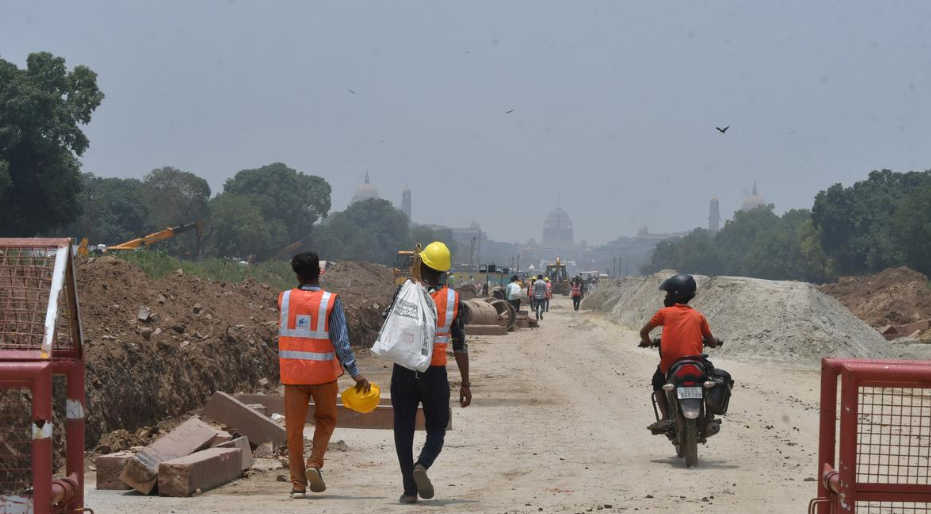A Critical Message for the Urban Elite: Reconnecting with Our Cities (GS Paper 3, Environment)

Context
- As India grapples with the effects of climate change, our technology-enabled ecosystems may be making urban life increasingly unlivable.
- The recent summer has highlighted this stark reality, with record-breaking temperatures and severe heatwaves claiming lives and straining resources.
Introduction
- This year, India witnessed an unprecedented summer, with temperatures soaring above 50°C in Delhi and over 200 reported fatalities due to heatwaves.
- As the monsoon arrives and the memory of extreme heat fades, we risk overlooking critical warnings about our urban environments.
Urban Heatwaves in India
Increasing Frequency and Severity
- Urban areas in India are experiencing a rise in both the frequency and intensity of heatwaves, largely attributed to the Urban Heat Island (UHI) effect.
- This phenomenon occurs when urban areas become significantly warmer than their rural counterparts due to human activities that emit carbon.
The Urban Heat Island Effect
- The UHI effect is exacerbated by urban design, where materials like concrete and glass retain heat.
- In places like Gurugram, sleek glass buildings—though visually appealing—contribute to higher energy consumption and trap heat.
- The lack of green spaces further amplifies the oppressive conditions for outdoor workers and residents.
The Marginalized Bear the Brunt
Need for Immediate Attention
- Poor urban planning disproportionately affects marginalized communities, who often work outdoors and lack the resources to cope with extreme heat.
- Delivery workers, auto drivers, construction laborers, and domestic workers are especially vulnerable, facing relentless exposure to the elements with little protection or support.
Impact on Vulnerable Populations
- Delivery Workers: Often traverse the city under harsh conditions to meet demand, suffering both physically and economically.
- Construction Workers: Endure long hours in the sun without adequate hydration or shade, risking their health for minimal pay.
- Domestic Workers: Frequently walk long distances, exacerbating their exposure to extreme temperatures.
These groups are on the front lines of urban challenges, grappling with rising temperatures and poor air quality, all while the privileged remain insulated from these harsh realities.
Societal Implications of the App Ecosystem
Technology as a Barrier
- Our reliance on technology often blinds us to the struggles of those around us.
- Air conditioning and delivery apps create a comfort trap, detaching the urban elite from the lived experiences of the marginalized.
- With easy access to goods and services, many are less inclined to engage with their communities or advocate for systemic change.
Comfort vs. Responsibility
- This app-driven convenience diminishes our motivation to address pressing urban issues.
- The disconnect fostered by technology not only lessens our empathy but also enables a cycle of inaction among the privileged.
- As urban elites opt for comfort, they inadvertently perpetuate systemic inequities, weakening the fabric of urban governance.
Government Action and Inaction
Media Attention and Government Response
- When urban elites experience issues like inadequate public services, media coverage often leads to swift government action.
- For example, severe flooding in affluent areas of Delhi prompted immediate responses from authorities, highlighting how privilege can dictate the urgency of municipal improvements.
Inequities in Public Resources
- Conversely, public institutions, such as schools and transportation systems, often suffer from neglect, as the affluent prefer private alternatives.
- This inequity creates a vicious cycle where the needs of the majority are overshadowed by the desires of the privileged few.
Conclusion: The Need to Reconnect
- Breaking free from the comfort trap requires a conscious effort to reconnect with our urban environments and each other.
- It is essential for the urban elite to leverage their influence to advocate for equitable urban policies and improvements in living conditions for all.
- By acknowledging the true state of our cities and taking action, we can work towards creating more inclusive and livable urban spaces.
- The challenge ahead is not just about comfort; it’s about survival and solidarity.
- The urban elite must recognize that their well-being is intricately linked to the health of their cities and communities.
- It’s time to engage, act, and ensure that our urban landscapes are not just places of privilege but are sustainable and equitable for all residents.


